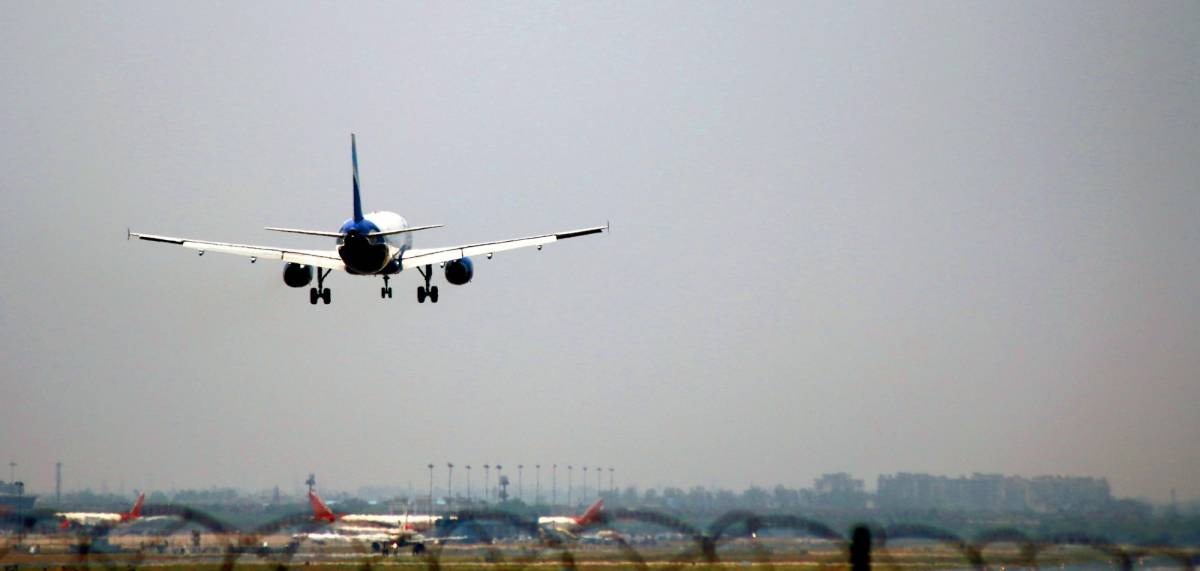Earlier, India had announced plans to allow resumption of scheduled commercial international passenger services from December 15 with certain conditions, reports Asian Lite News
India’s civil aviation regulator, the DGCA, on Thursday extended the ban on scheduled international commercial flights till January 31.
Earlier, India had announced plans to allow resumption of scheduled commercial international passenger services from December 15 with certain conditions.
However, on December 1, the Directorate General of Central Aviation (DGCA) said it is “closely monitoring” the situation emerging out of the Covid-19’s Omicron variant and the final decision on the resumption of near normal international flight operations will be taken after consultation with stakeholders.
In the notification on Thursday, the DGCA extended the ban on scheduled international commercial flights till January 31, 2022.
“This restriction shall not apply to international all-cargo operations and flights specifically approved by the DGCA.”
It also said that scheduled international flights might be allowed on selected routes on a case to case basis.
India had banned the operation of international flights on March 23 last year to contain and control the spread of Covid-19. Flight restrictions, however, were later eased under air bubble arrangement with certain countries.
India has air bubble pacts with 31 countries, including the US, UK, UAE and France. However, passengers arriving from 12 “at risk” regions (countries in Europe including the UK, South Africa, Brazil, Botswana, China, Ghana, Mauritius, New Zealand, Zimbabwe, Tanzania, Hong Kong, Israel) have to be mandatorily tested even after their arrivals, wait for their report at the airport and home quarantine for seven days if they test negative on arrival. These passengers are also asked to watch their health from the eighth till the 14th day.
Singapore, which was part of the list, was removed on Thursday.
The country had been operating Vande Bharat flights to many countries over the last one year to evacuate stranded Indians abroad.
Currently, several nations have either closed their air spaces or placed strict restrictions on incoming passengers.
On Tuesday, the Centre mandated a contactless self-declaration by international air travellers arriving in India on the ‘Air Suvidha’ portal.
As per a Ministry of Civil Aviation statement, all international passengers arriving in India are mandated to declare their current health status prior to boarding on the Air Suvidha portal along with the required documents.
“For immigration, the copy received in e-mail is essential on arrival in India and has to be verified at the ‘APHO’ counter,” the statement said.
According to the ministry, all applications from ‘at risk’ countries are marked with ‘H’ and ‘red band’, while others are marked ‘green’.
“This helps in smooth on-arrival segregation and processing. The application also takes into account countries visited in the last 14 days to highlight ‘at risk’ applications. This field has also been made into multi-select drop-down option for standardisation.”
There are more than 10 countries in the “at risk” list, including countries in Europe, South Africa, Brazil, Bangladesh, Botswana and China, among others.
IATA urges govts to rescind travel bans
Meanwhile, the International Air Transport Association (IATA) called for governments to follow World Health Organisation’s (WHO) advice and immediately rescind travel bans that were introduced in response to the Omicron variant of coronavirus.
Public health organisations, including the WHO, have advised against travel curbs to contain the spread of Omicron.
“After nearly two years with Covid-19 we know a lot about the virus and the inability of travel restrictions to control its spread,” IATA Director General Willie Walsh said.
“But the discovery of the Omicron variant induced instant amnesia on governments which implemented knee-jerk restrictions in complete contravention of advice from the WHO – the global expert.”
According to Walsh, the goal is to move away from the uncoordinated, evidence-absent, risk-unassessed mess that travellers face.
“As governments agreed at ICAO and in line with the WHO advice, all measures should be time-bound and regularly reviewed. It is unacceptable that rushed decisions have created fear and uncertainty among travellers just as many are about to embark on year-end visits to family or hard-earned vacations.”
ALSO READ-India defers full resumption of international flights

